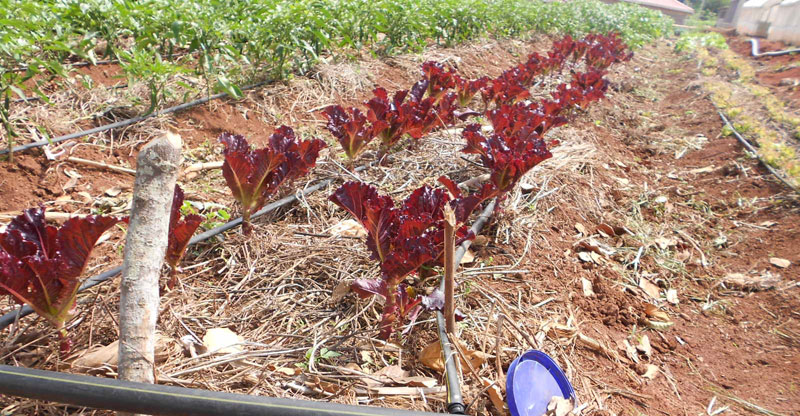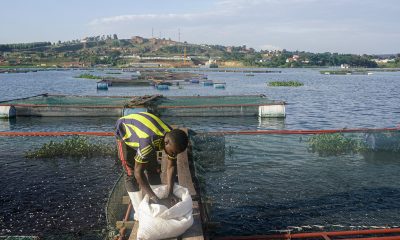Analysis
Urgent Agriculture Reforms: Only Way out for Uganda
Climate change is not just a fad: it is real. Millions of people across Uganda are lucky; yes, only lucky to be alive in 2017 after arguably the worst farming year in as many years as a result of two failed growing seasons.
Many smallholder farmers who have long effortlessly relied on Uganda’s almost assured stable weather conditions, that afforded them two growing seasons, were last year hit by double shocks; two successive poor rains. The first rain season came very late towards – the end of April, and ended very early in May before most cereals were mature. In fact many people hadn’t finished planting than the dry spell set in.
As a result, maize, the biggest cereal and an important food security crop in the country, withered before it could bear cobs. The second season has been only a little bit better for some parts of the country in the central, Bunyoro and some northern parts of Uganda. In most parts of Eastern Uganda such as Teso, Tororo, Karamoja and even parts of Busoga, seeds have baked in the soil and others have barely got off the ground.
The total consequences of last year’s failed rains on individual households, businesses and the whole country are impossible to quantify. The Lira District Woman MP, Joyce Atim Ongom, at a recent MPs meeting commented on this, saying; “Climate change has destroyed our economy.”
The immediate, and perhaps visible repercussions, have been: deaths from famine in some parts of the country; palpable high levels of poverty; increased food prices; business collapse; and, increased levels of loan defaults in commercial banks, among others.
The Government tried to respond to the food crisis by taking food aid to the most vulnerable sections of the population, the sick and the elderly in Kalungu, Isingiro, Teso and Karamoja sub-regions.
While on a recent tour of Eastern Uganda, President Yoweri Museveni admitted that the Government was short on funds to be able to provide food relief, he ordered for the diversion of roads funds to help it meet its constitutional obligation of protecting Ugandans from dying of hunger.
The longer term effects are not any harder to imagine. They will likely include increased mental and physical stuntedness among children, increased rural-urban migration and higher unemployment, increased school drop-out rates and reduced exports.
But warnings about the consequences of climate change, especially on food production, have been around for sometime but they have been largely ignored by the Government and generally the wider Ugandan society.
This, experts now warn, will only make the situation more precarious. Because food production is expanding at a much slower pace than the population growth, much of Africa will have to rely on food imports to feed its population.
Considering that millions of people are already starving in most parts of Africa, the future is frightening, especially if we as individuals and society, continue with business as usual.
In order to avoid the apocalypse of massive starvation, wars over food and water and economic collapse, Uganda has got to reform her agriculture to cope with the changing climate.
The latest warning came last week from a team of researchers from Wageningen University and Research (WUR) in the Netherlands, several African institutes and the University of Nebraska, US.
The researchers warn that Africa’s per capita food production is declining rapidly; that the continent will have to rely on food imports to be able to feed an estimated 2.5bn population in 2050, more than twice the current number of people on the continent.
The researchers call for radical reforms in Africa’s agriculture particularly targeting intensifying production so that farmers can increase yields on the available plots. “You still hear people say that Africa can become one of the world’s major grain baskets. But it may be very challenging for Africa = even to remain self-sufficient,” said lead researcher, Martin van Ittersum, Professor in the Plant Production Systems at WUR.
Increasing agricultural productivity in Uganda will require radical reforms in the Government policies and implementation. In view of ravages of climate change, the most urgent reform needed now is to integrate irrigation in farming systems across the country.
Ntenjeru North MP, Amos Lugoloobi, is among those that have called for allocation of significant funds towards irrigation comparable to what the Government is investing in the roads infrastructure. Indeed, if the Government is to achieve its goal of transforming the economy to a middle-income status by 2020, reliable water will be needed to support the boosting of production of coffee and other exports.
The challenge of meeting water demand for agriculture in Uganda cannot be met without a mindset change that requires dedication among politicians, local leaders, opinion leaders and even, farmers.
The central and local governments can meet the costs of delivering bulk water to dams that can be established at parish level. From here, farmers can be helped with appropriate financing mechanisms, such as, low interest loans to procure on-farm irrigation equipment.
Reviving cooperatives will be an essential part of the reform agenda in agriculture. Improving regulations surrounding cooperatives management can be an important first step to restoring confidence among farmers. But cooperatives can be an even more vital part in mobilizing funds for investment in agriculture, helping farmers to share equipment and the knowledge on agricultural technologies. Cooperatives, too, will be a vital tool in bringing about organized marketing and creating the ground for value addition.
Thanks to years of leadership in agricultural research by Ugandan scientists, Uganda has made considerable progress in terms of developing disease and drought-tolerant crops that can be grown to achieve greater productivity.
What politicians need to do for Uganda and for their own sake is to admit that the country faces real danger. If they do not act and act decisively to transform agriculture, the bed-rock of Uganda’s economy will be in gross danger.
Comments





















